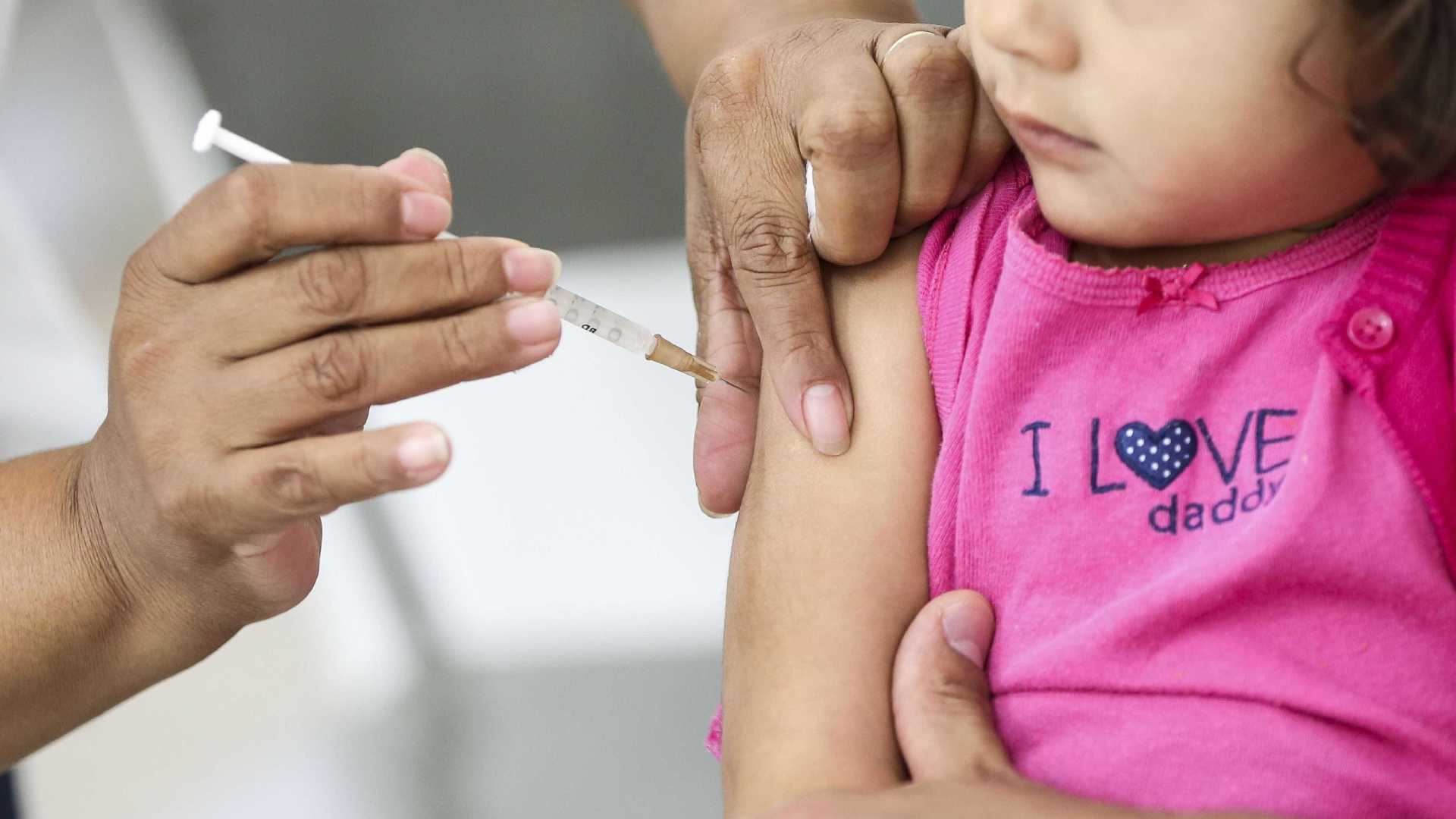Do you know that more than a half of the leading causes of death in newborns are preventable by appropriate vaccination? Vaccination is an intelligent way of preventing a disease before it occurs or shows symptoms. There are more than 25 life threatening diseases that can be avoided by vaccination.
The term vaccine is defined as a biological preparation that provides active acquired immunity to a particular infectious disease. Vaccination is the process of stimulating the natural disease fighting system of body by weakened microbes.
The process of vaccination is based on the phenomena of “herd immunity”, which means that vaccines are used to protect the whole population by reducing the number of eligible host. By this process the ones, who cannot be vaccinated are kept safe from disease outbreaks.
Vaccination And Immune System
When microbes of infectious diseases enter our body; they start to reproduce, our immune system works as a protection agent and prevent them from reproducing by making antibodies. These antibodies first kill those invaders and then they remain in blood stream for future protection against similar disease.
Vaccination is like a shield for immune system which is one step ahead of diseases. Vaccinations are often made of killed germs of same disease (that are in a way not lethal to body), against which it is used. These vaccines stimulate the immune system, and immune system starts making antibodies. These antibodies remain in your bloodstream, protecting you from disease without getting infected once.
New born babies have not yet fully developed their immune system and are exposed to some deadly diseases they cannot handle by mere immune system. This is the importance of vaccination. Some studies show that annually 3 million child deaths are prevented by vaccination.
Types Of Vaccines
- Live-attenuated vaccines uses enfeebled version of the microbe of disease that is to cure. For instance it is used against yellow fever, chickenpox and small pox.
- In-activated vaccines uses the microbe whose harmful characteristics are being deactivated. For instance it is used against hepatitis A, polio and flu.
- Conjugate vaccines use the subunits of microbes (for instance only proteins). It is used against hepatitis B, HPV and shingles.
- Toxoid vaccines use encrypted toxic part of microbe and use them against harmful parts of disease’s microbes. Example of this includes tetanus.
Vaccination Schedule
This is a schedule that tells the information about series of vaccine, the amount of dose, number of doses, time and date of doses. Vaccine schedules are both compulsory and specifically recommended. Compulsory vaccines are scheduled by government in collaboration with physicians and pediatricians. Over past few years advancement in health sector leads to a number of vaccines making this schedule variable. World Health Organization (WHO) keeps a check on these schedules. Vaccine schedules differ according to region throughout the world. There are some specific vaccines that may be crucial in one country but not in any other.
Vaccine Schedule In Pakistan
Diseases that can be reduced by vaccination and have been eradicated from developed countries are still measured lethal in Pakistan. Failure in vaccinating the population of Pakistan has eventually led to a low mortality rate.
World Health Organization has introduced “Expanded Programme of Immunization” (EPI) in most of developing countries to counter the diseases thatcan be immunized. However in Pakistan ever since beginning this program had faced difficulties due to many obstacles such as illiteracy, lack of parental awareness, lack of female empowerment, poverty and influence of religious extremists. Following table shows the vaccination schedule according to EPI.
| Dose | Age | Vaccines |
| 1 | Birth | • Oral Polio Vaccine -0 (OPV) • Bacillus Calmette–Guérin Vaccine (BCG) • Hepatitis B |
| 2 | 6 Weeks | • Oral Polio Vaccine-1(OPV) • Pentavalent Vaccine-1 • Rotavirus-1 • Pneumococcal-1 |
| 3 | 10 Weeks | • Oral Polio Vaccine-2 (OPV) • Rotavirus-2 • Pneumococcal-2 • Pentavalent Vaccine-2 |
| 4 | 14 Weeks | • Oral Polio Vaccine-3 (OPV) • Inactivated Polio Vaccine (IPV) • Pneumococcal-3 • Pentavalent Vaccine-3 |
| 5 | 9 Months | Measles -1 |
| 6 | 15 Months | Measles – 2 |
For more detailed information you can visit official website of Expanded Program on Immunization Pakistan.
Myths And Side Effects
Several myths are associated with child vaccination in Pakistan i.e.; vaccines cause autism, vaccine schedule is harsh for infants, there are harmful side effects, it causes cancer, it cause severe allergies, it induce sterility and that ingredients of vaccination are religiously prohibited. All these are just myths that are false and cause doubts and distortions in society.
Vaccination may sometimes cause side effects. These side effects are most of the time very mild and severe side effect are very rare. The common side effects include Pain, swelling, Mild fever, Chills and Headache. These will eventually pass by the time. Other side effects may include allergic reaction which can be treated easily, febrile seizure which lasts for 1-2 minutes and bowel blockage.
Medicines are used to cure the disease while vaccination is used to prevent diseases and “Prevention is better than cure”. Without vaccination new born are at a great risk of getting diseases that can cause death or serious disabilities. Child Vaccination in Pakistan Vaccination is not new in medical sector and vaccines are verified after some serious testing processes to ensure the safety of infants. Immunization is the safest, easiest and most effective way to prevent life threatening diseases and therefore essential for a strong immunity.
